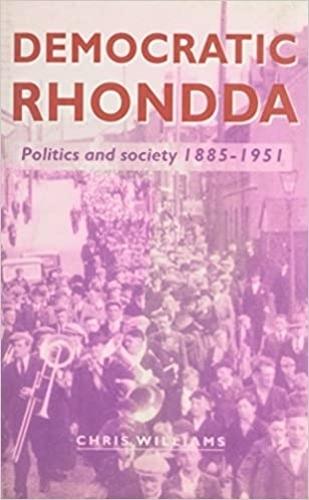
Democratic Rhondda: Politics and Society, 1855-1951
(Hardback)
Publishing Details
Democratic Rhondda: Politics and Society, 1855-1951
By (Author) Chris Williams
University of Wales Press
University of Wales Press
28th June 1996
United Kingdom
Classifications
Tertiary Education
Non Fiction
Left-of-centre democratic ideologies and movements
Political parties and party platforms
942.97208
Physical Properties
Hardback
280
Width 138mm, Height 216mm
Description
This is an investigation of the modern political history of the Rhondda Valleys, from the late 19th century through to the aftermath of World War II. Rhondda returned Wales's first Labour MP, nurtured doctrines of workers' control of industry, and became a Labour Party stronghold before 1914. In the inter-war decades Rhondda's political culture sustained not only a resilient Labour Party, but also provided for a level of Communist Party support umparalleled in British terms, leading to fierce political conflict between the two left-wing parties. This study aims to provide an explanation for the Labour Party's rise to power and subsequent domination in the Rhondda.
Reviews
" . . . his landmark study . . . has taken an earth-mover to the historical landscape: hereafter we look at a different political prospect. His questions and approach will shape the necessary wider research assult on Labour politics. Those who join him in this will need to keep his volume handy if they are to do justice to the task." -Planet
-- "Planet""Chris Williams's important new analysis of Rhondda in the period between 1885 and 1951 provides this necessary re-interpretation. In re-assessing the accepted truths of Labour's ascendancy he has produced an exhaustive, convincing and, in many ways, iconoclastic analysis of key features of its rise to power and subsequent consolidation . . . This book breaks new ground. In producing what will be the definitive study of the Labour Party in the Rhondda the author has undoubtedly set the standard for what, as Williams himself suggests, should be the next step in developing a more comprehensive history of working-class politics in south Wales." -Socialist History
-- "Socialist History""For the political historian the book is a must; for the local historian it is an intriguing example of how local issues intertwine with the national perspective." -Local Historian
-- "Local Historian"Author Bio
Chris Williams is Professor of History and Head of the School of History, Archaeology and Religion, Cardiff University.
